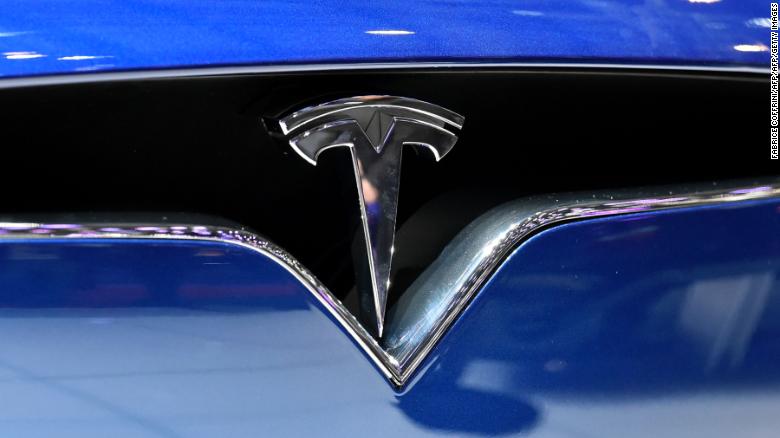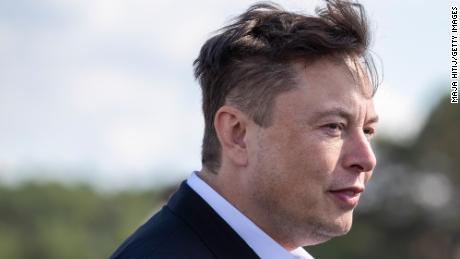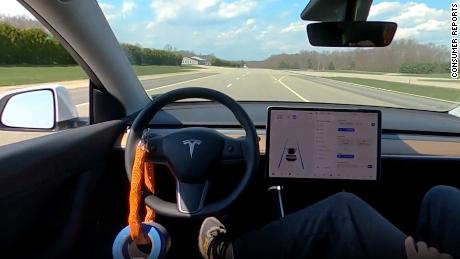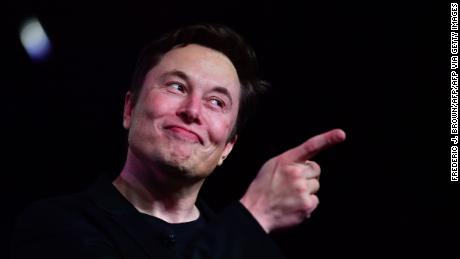New York (CNN Business)Tesla is one of the most polarizing companies on the planet.
Fans of the electric car company and CEO Elon Musk think Tesla (TSLA) will reinvent the mass market auto industry thanks to the Model 3 sedan and upcoming Model Y crossover.
But Musk's detractors think Tesla is an overvalued company that has yet to prove it can be consistently profitable and still faces challenges from global auto giants like GM (GM), Volkswagen (VLKAF) and Nissan (NSANF).
The Tesla bulls have the upper hand for now. Shares are up nearly 40% in the past month and more than 60% in the past three months.
That's pushed the stock back into positive territory for the year. (It still lags the performance of GM, Ford (F), Fiat Chrysler (FCAU) and many other big auto makers, however.)
Tesla's strong earnings and sales last month were a key catalyst behind its recent rebound. Musk also said during the company's last earnings conference call that production plans for the Model Y -- which he predicted will outsell the Model 3 as well as its higher end S sedan and X crossover "combined" -- are ahead of schedule. The Y should launch in the summer of 2020 instead of in the fall.
Those are key reasons why Wall Street now expects Tesla will post a profit in the fourth quarter -- and for all of 2020.
Musk is looking to capitalize on the momentum with plans to build a new European gigafactory for lithium-ion batteries and vehicles in Berlin -- the city in which VW was founded. Tesla is also building a gigafactory in Shanghai to take on Chinese rivals Nio (NIO), BAIC Motor and BYD (BYDDF), a company backed by Warren Buffett's Berkshire Hathaway (BRKB).
The bear case against Tesla
Many analysts are still wary of Tesla. The consensus price target for the stock is just under $263 -- more than 25% below its current price.
Cowen analyst Jeffrey Osborne, who has one of the lower targets on Wall Street at just $190 a share, thinks the company's recent rally is unsustainable.
His take on the company's third quarter earnings report?
"Nearly every financial lever appeared to have been pulled to the positive compared to [the second quarter], and we question how repeatable many of these actions will be," Osborne said.
Oppenheimer's Colin Rusch has a decidedly different take on Tesla. Rusch is one of the most bullish Tesla analysts on Wall Street. His target price of $385 is nearly 10% higher than where the stock is trading now.
Tesla bulls emboldened
Rusch said in a research note after Tesla's last earnings report that concerns about the sustainability of Tesla's business "are effectively off the table." Investors will now view Tesla more favorably when compared to larger auto companies that are "struggling with global demand challenges, technology transitions, product design, and fraught labor relations," he added.
Musk has a history of making promises that he can't deliver, particularly regarding production timelines.
He's also made enemies because of controversial comments, such as unfounded accusations that one of the rescuers of a boys' soccer team and their coach trapped in a flooded cave in Thailand in July 2018 was a pedophile. Musk later apologized on Twitter.
Musk has also been in hot water with regulators, most notably the Securities and Exchange Commission, after tweeting in August 2018 that he had "funding secured" to take Tesla private at $420 a share. That led to a short-term pop in the stock price. No such deal materialized.
Tesla skeptics also point to Musk's many other distractions, such as the fact that he's also running rocket maker SpaceX and working on a Hyperloop underground transportation system with his tunnel digging firm called The Boring Company.
Still, the fact that Tesla has its fair share of critics may, strangely enough, wind up being one of the main factors to push the stock even higher -- at least in the short term.
Nearly 25% of Tesla's available shares are held by short sellers, investors who bet that a stock will go down so they can make money from the decline in the price.
Short sellers do that buy borrowing shares and selling them with the hopes of buying the shares back at a lower price. The difference between the price the short sellers sold at and the price at which they repurchased the stock is their profit.
But when a stock that's heavily shorted climbs on good news, that leads to big losses for short sellers since it drives up the price they have to pay to return the stock they borrowed. That's known as a short squeeze.
Last month, when Tesla stock jumped 20 percent when it surprised Wall Street with a third quarter profit. CFRA analyst Garrett Nelson said in a report that as long as Tesla keeps reporting good news, there's no end in sight for the short squeeze.























